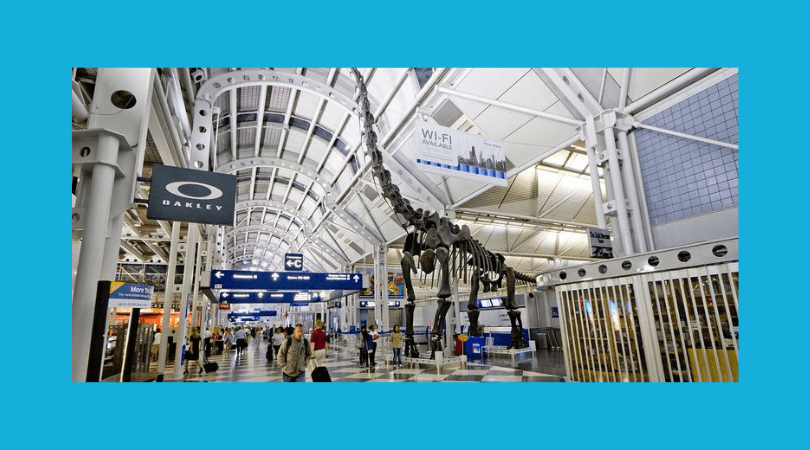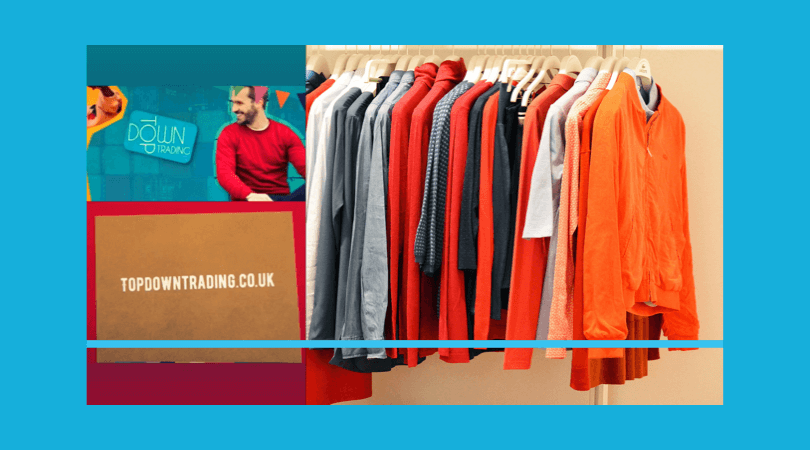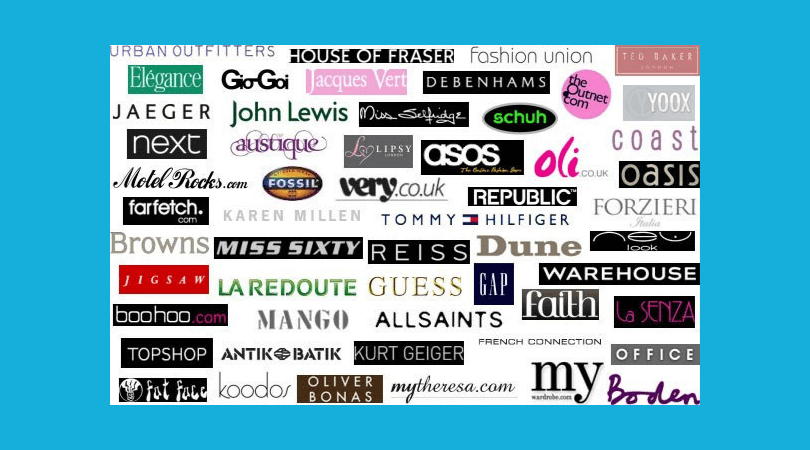Luxury goods, vending machines, bookstores, beauty products: Everything is fair game in the high flying world of airport retail. And the tech industry is about to up the stakes again.
If airport retail continues to develop at the breakneck pace it's currently keeping, airport shopping corridors may become tourist destinations in their own right.
Airport retail
According to The Washington Post and the Airport Experience News Fact Book, U.S. travellers in 2017 spent more than $1.7 billion at airports' newsstand and travel convenience stores. And a report released in 2017 by GlobalData estimated that spending in airports could reach a global total of $49 billion by 2021, representing a 27% increase over 2016 numbers.
It's not just about dollars, either. A recent Supply Chain Dive article noted that North American travelers wait an average of 90 minutes between airport security and boarding at medium to large hubs. Furthermore, "Between 76% and 90% of concession space is after the security lines, in the "airside" part of the airport (versus "landside" before security)."
Then there's the uptick in passengers, all of whom are potential retail customers. The International Air Transport Association (IATA) reported 3.8 billion global air travelers in 2016. That number is expected to double to almost 7.2 billion passengers by 2035. It's not surprising, then, that the retail race to get in front of this captive, experience-hungry market is fiercer than ever.
How airport retail is changing
Over the past decade, the number of companies vying for square footage in the airport retail arena has increased exponentially, which has in turn made the space extraordinarily competitive, according to Brian Levin, VP of sales and co-founder of Swyft, an automation technology company that works with brands such as Benefit, Dollar Shave Club, Best Buy, and Uniqlo.
Shopping corridors have also been reconfigured, which has impacted the space. Levin said that while food, retail and beverage were always a focus, airports have been reconfigured to essentially force consumers to walk directly through concessions on their path through the airport.
"Government officials are now seeing the revenue that can be generated in airports, but also, it's not necessarily what's best for the customers," he said. "[An airport is] the last time a city or state can push its desires and dreams on travellers, but they still need to cater to the travelling customer. And there's public data around this. A great example is that some airports are looking at how they can retail CBD products. It may embrace the city's culture and who they are, but it's not always best for the customer. Or [an airport] may say, 'We want a vegan concept' instead of 'a food and beverage concept that caters to vegans.' But that may not cater to the larger public."
Another huge shift that changed airport retail was the slow decline of print media. "It started a little before the last ten years, where the amount of periodicals that newsstands carried changed because people were reading on their phones," said Ramon Lo, publisher of Airport Experience News. "[Periodicals] are still the top sellers, but that space has shrunk. And the retail focus changed to travel essentials like small electronics, toiletries, and snacks."
Other brands, such as Spanx and Brooks Brothers, have also come in, shifting the focus of what a travel essential is. "Think about LAX," said Lo. "There's Fred Segal, and they do very well. And I've had to buy a tie, because something got stained, or I forgot." Lo said that the airport is an interesting test case for a retail brand, too, noting, "If you can get someone to buy [at the airport], then you can probably get them to buy anywhere."
In an email to Retail Dive, Stacy Moore, an airport food and retail consultant and independent airport better foodservice and specialty retail operator, said that the operators of retail and specialty retail are highly consolidated, with just a handful of players. "That said, each of them has an expanding brand portfolio," wrote Moore. "You are now seeing stores like Victoria’s Secret, Vineyard Vines, Kiehl’s, Eddie Bauer, [and] Life is Good, along with the usual high-end sunglasses and jewelry."
According to Moore, airports are a venue where people have time to shop, and as such, trends there are running counter to the trends on the street. For example, news and gift operators in airports also sell less impulse-driven necessities like luggage, and electronics retail points are everywhere. And despite the move toward tablets and mobile, bookstores are still thriving.
Some changes at the retail level go back even farther than the last decade. "9/11 changed the way we travel," said Marie Driscoll, managing director, luxury & fashion at Coresight Research, a global retail think tank. "It meant we had to be at the airport earlier, and you're in transit and you're waiting. Do you eat? Do you shop? Do you do work? Do you catch up? There are times when you're just stuck at the airports."
Driscoll said that meant all sorts of brands have viewed this traveler downtime as a way to introduce themselves to captive consumers. "There's a lot of eye candy, and there's a lot of people treating themselves," said Driscoll. "And people who are traveling tend to have money." Driscoll said that in travel retail, there's an aspect of still being on holiday, and still being able to buy something. "You have a lot of time, and it's easy to spend some money," she said.
What works?
Airport retailing may be an appealing concept, but it's not right for every company. "It really depends on the brand strategy for a particular retailer or brand," said Deb Gabor, CEO of Sol Marketing, a brand strategy consultancy, and author of the upcoming branding book, "Irrational Loyalty." She explained that a lot of brands want to take advantage of captive airport audiences and give them eye candy. "It's almost a living billboard for the brand, and an entry point. But I don't think it's where all brands want to be."
Levin agreed, and said that even for a captive consumer, not all retail brands will fly in the space. "We've had brands that just don't work," he said. "We took [acne treatment] Proactiv into airports, and it didn't work well because it's an embarrassing purchase." Yet other concepts that may at first appear ill-suited to an airport environment fared much better. Levin said Uniqlo is one such success story. Its vending machines sell jackets and t-shirts, and Levin has been pleased with the customer response. "We have a beautiful user experience [with Uniqlo]," he said. "Our returns have been virtually non-existent. We really cater to impulse buys through automation."
Gabor said that another reason some brands may not want to get into the airport game has to do with image, especially in shared retail environments such as the Duty Free shops. "Duty-Free stores used to be a real draw," she said. "They gave me access to things I couldn't otherwise get. But the array of brands that are available in Duty-Free has come down market. Instead of high-end sunglasses, like Tory Burch, it's Guess-branded stuff. Retailers are getting a lot of data about who passes through stores, and maybe this is an adjustment about the merchandise regarding the people who are actually shopping."
The Amazon question
Now there are rumours swirling around about a possible Amazon Go entrance into the fray. An Amazon spokesperson wrote in a statement to Retail Dive, "We do not comment on rumours and speculation." Yet the rumours persist, and with good reason.
"Amazon changes every kind of retailing," said Gabor. "Amazon could take over an entire terminal. It is a recognizable brand that people are bonded to." Gabor said that Amazon Go's self-service options won't work for higher-end brands, but its technology is well-suited for low-end convenience purchases like buying a book or picking a sandwich off a shelf. "They could take out Hudson News completely," she said. "I don't think people have an irrational loyalty to the Hudson News brand. It just happens to be in the airport terminal."
Hudson News declined to comment for this story, but Gabor said that consumers' loyalty to Amazon could pose a problem for Hudson, no matter how established it is. "There are people who are loyal to Amazon, and if Amazon Go decided to take over airports they could totally take out Hudson News and their competitors," she said.
Other airport retail experts have a different take. "Only Jeff Bezos knows what Amazon is going to do next," said Levin. "But they can't take over airports, because there's a bidding process. I think it's not going to be as easy as Amazon thinks. You can't just throw money at it." The complex realities of airport retail bidding mean that Amazon would have to compete with established players for limited space. That might be more trouble for the retail giant that it's worth.
"There is a challenge for Amazon in this space," said Lo. "Because airports are government entities, they put out for competitive bids. Amazon will have to play by the rules." Lo said that airports also get to decide what kinds of retail concepts exist in the space, and companies make bids on that real estate. "The challenge is fitting into the opportunities. If JFK is looking for cosmetics, they're going to want to partner with a company that operates in that space. If I'm Hudson News, and I'm looking to bid on a package at JFK, I might try and partner with Lush."
Levin said that competition for space won't be Amazon's only hurdle. It's also going to need to compete technologically. "We're going toe-to-toe with Amazon Go stores," said Levin. "[Later in 2019], we're launching a 'hand delivery vision store,' [meaning] you take the product off the shelf and essentially hand-deliver it to yourself. We'll be partnering with retailers and brands, both inside and outside airports."
Levin said the Vision Stores will launch in either Q2 or Q3 2019, both within and outside the airport environment.
As more retailers incorporate grab-and-go tech, the convenience represented by an Amazon Go store may also seem more commonplace. "Amazon has an uphill battle," said Levin. "There's not going to be anything special with an Amazon Go store. It will be the same experience [as Swyft stores] and different technology." Levin also explained that due to airport pricing restrictions, Amazon would not be able to undercut other retailer prices, because they are set — that's why all airport water costs the same, for example.
"We're thankful that Amazon has created this technology," said Levin. "But I'm not going to huff it back down the terminal to an Amazon store if someone else is selling similar items at similar price points." Levin also said that Amazon lacks the data to inventory properly in airports. "They sell 3 million products, but how do they pick which products to sell?" he asked. "We acquired [retail automation company] Zoom Systems in 2017, which has been in airports since 2005. So we have that data."
Brand exposure
There is the chance that an Amazon expansion is about something other than sales. "With Amazon, it's not just a business model," said Lo. "It's the name. It's got great brand equity, and people trust that." Lo said that Amazon's entry into space will be a matter of Amazon determining whether the cost and margin of being in an airport are worth it. "And if it's not about making money, then it's advertising. And then you think, how will they fit in Alexa?"
Driscoll suggested it may be about growing internationally. "Maybe data is their long game," she said. "Or maybe Amazon wants to get more brand exposure. [It's] pretty well known in the U.S., but it’s not as heavily used in other parts of the world. So maybe doing it in other locations makes sense. But there's no reason for them to do it unless they can do it in a better way, and I don't know if an airport is a place you want to discover Amazon private label products like Alexa."
Yet Amazon may also face an uphill battle when it comes to stocking brands other than its own private label products. "Brands want to control their identity," said Levin. "When they're in a Hudson or an Amazon, they lose something. Brands love having a machine that always speaks Uniqlo or Benefit or Best Buy."
It's also unlikely that Amazon would allow its tech to be licensed. "Hudson operates an FAO Schwartz, but if I had to guess, I think Amazon would want to operate their own units," said Lo. "On the food side, all the Chipotles were operated corporately. So I would be willing to bet that Amazon would not want to outsource the running of their units because then they'd have to pull the curtain back and they don't want to do that."
The future of airport retail
Even if Amazon decides not to get involved, there is further change coming to the travel retail sector. "Airports are going to continue to evolve to be more customer-focused," said Levin. "Airlines are fighting for flyers, and I think airlines will get into the retail business in one aspect or another. And there will be more customer engagement and more customer focus."
There will also likely be fewer players. "As the consolidation continues, you will see fewer and fewer operators controlling the real estate," wrote Moore. "Also, rents have increased substantially in the past 3 to 5 years and show no signs of levelling out. Operators who have the sheer size and expansive brand portfolio will be the ones deciding which brands make it to what airports."
In the end, it may not be the consumers, or even the airports, that get the biggest say in what's coming. As Moore explained, "The operators are the gatekeepers of real estate in airports." In that light, a giant like Amazon might find the constrictions of the airport space are too much of a tight squeeze.
Source:
AUTHOR





